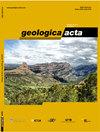论人类世的形式化及其工作组的建议
IF 2
4区 地球科学
Q2 GEOLOGY
引用次数: 3
摘要
在未来几年,人类世工作组可能会将人类世作为地质时间尺度的年代地层单位正式化。这引起了反对者和维护者之间越来越多的辩论,他们普遍认为这一概念是正式的,尤其是人类世工作组的建议。在这里,对有关地质时间尺度和单位形式化规则的主要问题、支持人类世形式化的经验数据以及对其形式化的批评进行了批判性的回顾。人类世的形式化程序与地质时间尺度的其他单位没有什么不同,基本上是基于地层和地质标准的。根据人类世工作组的建议,并基于人类世在地层中表达的经验证据,更重要的是,基于人类世与资本再生产之间的内在和结构联系,建议将Capitalian定义为人类世的一个阶段。通过这种方式,我们对地球历史有了真正全面的了解,其中包括正在进行的行星转变的最终原因及其地层表现。本文章由计算机程序翻译,如有差异,请以英文原文为准。
On the Anthropocene formalization and the proposal by the Anthropocene Working Group
In the coming years the Anthropocene will be likely submitted to formalization by the Anthropocene Working Group as a chronostratigraphic unit of the Geologic Time Scale. This has generated an increasing debate among detractors and defenders of its formalization in general, and of the proposal by the Anthropocene Working Group in particular. Here, the main issues regarding the Geologic Time Scale and the rules to formalize units, the empirical data supporting the Anthropocene formalization and the critiques to formalize it are critically reviewed. The procedure to formalize the Anthropocene is not dissimilar from those of the other units of the Geologic Time Scale and has been essentially based on stratigraphic and geologic criteria. Following the recommendation of the Anthropocene Working Group and based on the empirical evidence on the Anthropocene as it is expressed in strata and, more important, on the immanent and structural link between the Anthropocene and the reproduction of capital, it is proposed to define Capitalian as a Stage of the Anthropocene Epoch. In this way, a truly comprehensive understanding of the Earth history is obtained, which comprises the ultimate causes of the ongoing planetary transformation and its stratatigraphic expression.
求助全文
通过发布文献求助,成功后即可免费获取论文全文。
去求助
来源期刊

Geologica Acta
地学-地质学
CiteScore
2.50
自引率
6.70%
发文量
13
审稿时长
>12 weeks
期刊介绍:
- Relevant conceptual developments in any area of the Earth Sciences.
- Studies presenting regional synthesis.
- Thematic issues or monographic volumes presenting the results from one or more research groups.
- Short papers reflecting interesting results or works in progress.
- Contributions and results from Research Projects, Workshops, Symposiums, Congresses and any relevant scientific activity related to Earth Sciences.
- Geologica Acta aims to stimulate rapid diffusion of results and efficient exchange of ideas between the widespread communities of Earth Science researchers (with special emphasis on Latinamerica, the Caribbean, Europe, the Mediterranean
 求助内容:
求助内容: 应助结果提醒方式:
应助结果提醒方式:


